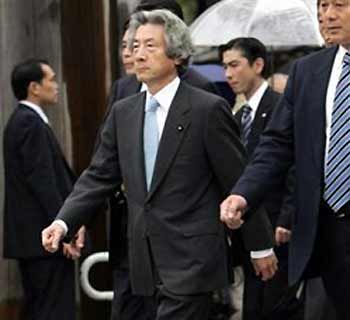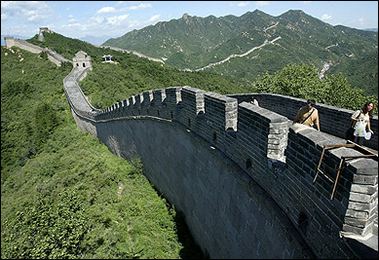Heading a Chinese delegation, Vice-Foreign Minister Dai Bingguo is expected to fly to Tokyo today to hold two-day talks with his Japanese counterpart, Shotaro Yachi.
No specific topics have been officially unveiled, but Japan's Kyodo News Agency reported the upcoming Dai-Yachi talks are likely to touch on the Japanese leader's repeated visits to the Yasukuni Shrine honouring 14 convicted Class A war criminals and the bilateral dispute over China's natural gas project in the East China Sea.

A major task for the talks is to break the stalemate in the soured China-Japan relations, without which the high-level meeting between the two leaders cannot go on, said Jin Xide, a researcher on Japanese studies at the Chinese Academy of Social Sciences.
"So we can't expect any breakthroughs on a specific question if it hinders the development of bilateral relations from the fourth-round China-Japan strategic talks," Jin told China Daily yesterday.
China and Japan had three rounds of talks last year, the last one taking place in Beijing in October.
The last talks were stopped when Japanese Prime Minister Junichiro Koizumi visited the Yasukuni Shrine, which China, along with other Asian countries, sees as a symbol of Japan's past militarism.
China-Japan relations have cooled since Koizumi took office in 2001 and began his annual visits to the Yasukuni Shrine.
Despite repeated requests by Beijing and Seoul to stop the pilgrimages, Koizumi visited the Yasukuni Shrine in October, triggering a further strain on diplomatic ties.
Signs have shown the icy political relations have "cooled" the growth of bilateral trade, because the bilateral relations were at a very low point last year.
Between January and August last year the trade volume of Japan and China increased by 10.3 per cent year on year at least 13 percentage points less than the growth rate between the EU, the United States and the Republic of Korea, which register at 23.7, 24.9 and 25.7 per cent respectively, according to the Ministry of Commerce.
The key to improving bilateral ties is for Japanese leaders to face up to wartime history and stop visiting the Yasukuni Shrine, a move that has offended the Chinese people, said Guo Xiangang, an expert at the China Institute of International Studies.
The talks are significant because communication between the two countries still functions. "I personally feel cautiously optimistic about the outcome of the talks," he said.
On Tuesday, Foreign Ministry spokesman Kong Quan told reporters at a regular news briefing in Beijing that China hopes the two sides can enhance their understanding through the talks.
"We will also reiterate our solemn stances on certain issues," he added.


No comments:
Post a Comment